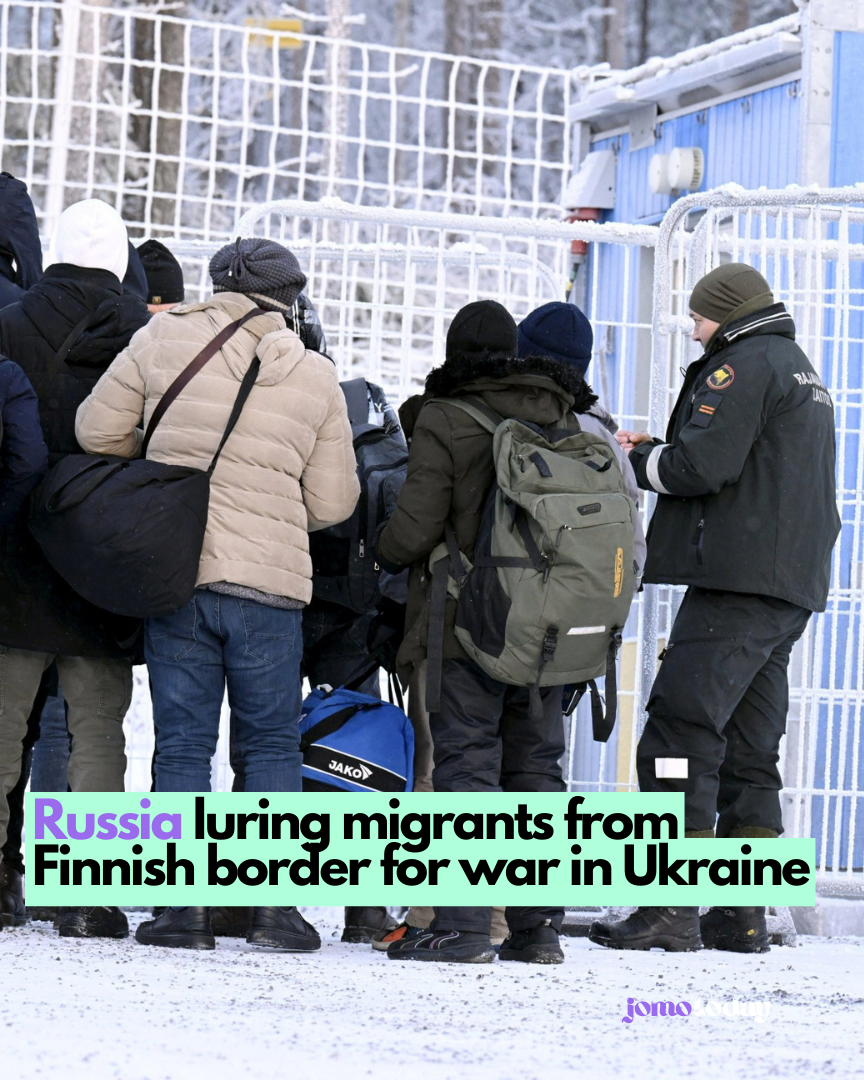Russia is allegedly engaged in a controversial practice of recruiting foreign migrants detained at its border with Finland for military service in Ukraine, violating commercial regulations that expressly prohibit such actions. The unearthed evidence pointing to several instances where individuals were coerced into signing army service contracts at military camps located along the border with Ukraine. This coercion reportedly occurred shortly after the individuals were apprehended for breaching immigration laws. While the practice of coercing people in pre-deportation detention centers to sign contracts for army service is not entirely new, there has been a noticeable surge in cases, particularly as foreign migrants began arriving at Russia’s 1,340-km (833-mile) border with Finland.

The backdrop of this controversial recruitment drive involves Finland temporarily closing all eight of its Russian border crossings. Finland accuses Moscow of deliberately channeling migrants and asylum seekers to these border areas as part of a broader destabilization campaign. This campaign allegedly intensified after Finland joined NATO earlier in the year. The closure of the border crossings was a response to the organized influx of migrants and asylum seekers, with the Russian government being accused of facilitating their movement towards the Finnish border. Finnish authorities noted the distribution of bicycles, many of them brand new, which migrants used to traverse the last stretch of the Russian border zone, bypassing restrictions that prohibited approaching border posts on foot.
Analysis of court hearings in Karelia, one of the three Russian regions bordering Finland, revealed that over the past three weeks, 236 individuals were arrested for staying in Russia without valid visas, making them subject to deportation. Similar patterns were observed in the other two border regions of Leningrad and Murmansk. The detainees, often facing deportation, were offered an alternative – signing up for military service in exchange for avoiding expulsion. This practice has been particularly highlighted in the case of a Somali man in his 40s, among others.
The Somali man, identified as Awad (a pseudonym), had arrived in Russia in mid-July and had attempted to enter Poland via neighboring Belarus. By early November, he found that the Russian border with Finland had become more accessible, with unprecedented numbers of migrants seeking refuge there. The surge in migrants arriving at Finland’s border resulted in increased arrests by Russian authorities.
Awad, like many others, was arrested for not having a valid visa when his month-long visa had expired in August. Subsequently, he and other detainees were approached by military representatives soon after their arrest, offering them a job for the state. The job promised good pay, medical care, and permission to stay in Russia upon completing a one-year army contract. Fearful of deportation to Somalia, where he had faced threats from al-Shabab militants, Awad signed the contract, as did several other Somalis, individuals from Arab countries, and a Cuban national.
The controversy deepened as these individuals were transported to the border with Ukraine, where they realized that they were being sent to fight. Awad and others claimed that the promises made to them were false, and they felt deceived into signing up for the Russian army. The group demanded the annulment of their contracts, leading to threats of long prison sentences from officials at the military camp. However, officials later retreated, assuring that the job offers would be canceled, and deportation procedures would resume.
This alarming situation raises concerns about the treatment of migrants at Russia’s borders, the use of deceptive practices to recruit individuals for military service, and the potential consequences of geopolitical tensions on vulnerable populations seeking refuge. The sought further comments and information from Russia’s interior ministry on these serious allegations. As this story unfolds, it underscores the complex interplay between immigration, geopolitics, and the treatment of vulnerable individuals caught in the crossfire of international conflicts.
Read more: Jamie Foxx’s Triumphant Return: A Look at His First Public Appearance after Illness






2 Comments